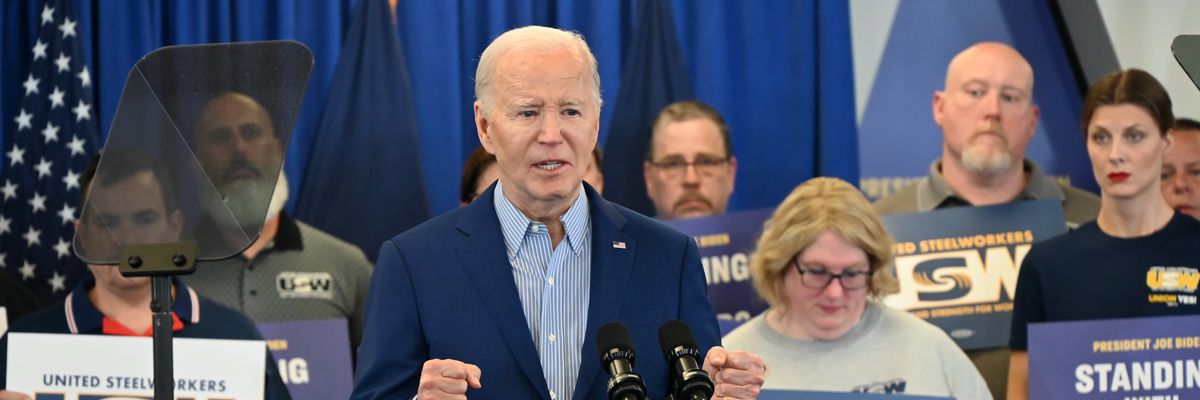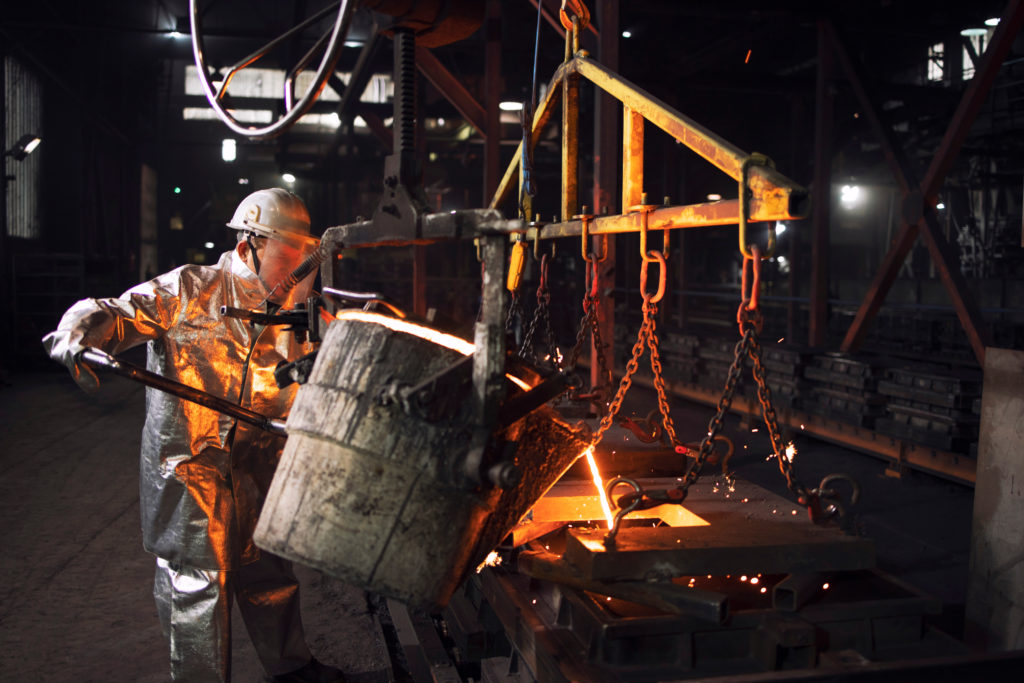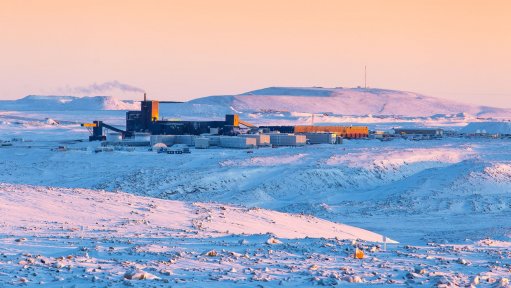"We're grateful for President Biden's willingness to take bold action to maintain a strong domestic steel industry and for his lifelong commitment to American workers," said United Steelworkers International President David McCall.

U.S. President Joe Biden speaks on proposing tariffs on Chinese steel at the United Steelworkers Headquarters in Pittsburgh, Pennsylvania on April 17, 2024.
(Photo: Kyle Mazza/Anadolu via Getty Images)
Eloise Goldsmith
Jan 03, 2025
COMMON DREAMS
The United Steelworkers union commended a decision by President Joe Biden, announced Friday, to block a proposed acquisition of U.S. Steel by the Japanese company Nippon Steel.
United Steelworkers International President David McCall said in a statement that the union is "grateful" to Biden for his "willingness to take bold action to maintain a strong domestic steel industry and for his lifelong commitment to American workers."
"We now call on U.S. Steel's board of directors to take the necessary steps to allow it to further flourish and remain profitable," he added.
McCall toldReuters in mid-December that Nippon Steel had not given him an assurance that the Japanese firm is committed to ensuring the lasting success of U.S. Steel. "When we've had discussions with them there's been nothing that would assure us that there's a long-term viability in the operations," McCall said in an interview with the outlet.
In December 2023, U.S. Steel—the Pittsburgh-headquartered company that played a key role in establishing U.S. industrial might—announced that it had entered an agreement to be acquired by Nippon Steel for $14.9 billion. The deal drew scrutiny from lawmakers, federal regulators, and the United Steelworkers union, causing its closing to be delayed. Biden, who has made reviving "American-style" industrial policy a key part of his presidency, has long indicated his opposition to the deal.
Biden said he ultimately decided to block the proposed acquisition because he believes that "a strong domestically owned and operated steel industry represents an essential national security priority and is critical for resilient supply chains."
The Committee on Foreign Investment in the United States, a federal committee that has the power to review certain transactions involving foreign investment in the United States to evaluate a deal's impact on national security, decided to forgo making a formal recommendation about whether the deal should be allowed to proceed last week.
The proposal also became ensnared in election year politics, with both presidential candidates saying that U.S. Steel should remain a domestically-owned firm. Rust Belt lawmakers in both parties, including Sen. Bob Casey (D-Pa.) and Sen. Sherrod Brown (D-Ohio)—both of whom lost re-election in November—and Vice President-elect JD Vance, an Ohio Republican, expressed opposition to the deal.
Shortly after the deal was unveiled, multiple Pennsylvania Democrats, including Casey and Rep. Summer Lee, wrote to the president of Nippon Steel expressing concerns about the failure of the two firms to consult or notify the United Steelworkers union ahead of the announcement, according to Reuters.
"From the beginning, the workers who power this company should have had a seat at the negotiating table—their livelihoods hung in the balance. No matter what, I will keep fighting to protect Western PA Steelworker jobs and American steelmaking," wrote Representative Chris Deluzio (D-Pa.) on Friday.
U.S. Steel, for its part, has attempted to refute criticisms of the deal. David B. Burritt, the president and chief executive of U.S. Steel, penned an op-ed in The New York Times in December, arguing that blocking the deal would help China. "With this deal, our workers' jobs would be more secure, our customers would be better served and China's domination of global steel production would be weakened. Without it, we would become more vulnerable," he wrote.
"Nippon Steel and U.S. Steel are confident that our transaction would revitalize communities that rely on American steel," the two firms said in a joint statement Friday. They condemned Biden's decision as "unlawful" and said that the president's "statement and order do not present any credible evidence of a national security issue, making clear that this was a political decision."
"Following President Biden's decision, we are left with no choice but to take all appropriate action to protect our legal rights," they wrote.
This article was updated to include a statement from Nippon Steel and U.S. Steel.
Steelworkers union criticizes Nippon Steel’s proposal for lack of long-term commitment
Reuters | January 2, 2025 |

Production of steel castings. Stock image.
The United Steelworkers union expressed concerns about Nippon Steel’s latest proposal that gives the US government veto power over any potential reductions in US Steel’s production capacity, if they get the approval to merge.

The union, which has opposed US Steel’s merger with the Japanese steel giant, said Nippon’s offer fails to commit to sustaining production over the long term or enhancing domestic capacity in integrated facilities.
“Protecting capacity only means moth-balling our equipment, allowing it to rust away to the point that it is no longer feasible to re-start,” the union said in a statement on its website on Thursday.
The proposal “is nothing but a “Hail Mary” pass destined to fall to the ground,” it added.
On Tuesday, reports said Nippon Steel made a proposal to give the government a final say over any potential production cuts, as part of its efforts to secure President Joe Biden’s approval for acquiring the American steelmaker.
In 2023, Nippon clinched the deal to buy US Steel at a hefty premium, but the merger has since faced opposition from the powerful Steelworkers’ union as well as politicians.
“The truth remains that this transaction is the best way to ensure that US Steel, including its employees, communities, and customers, will thrive well into the future,” US Steel said on Thursday in response to the union’s statement.
The Committee on Foreign Investment in the United States (CFIUS) has referred the decision to approve or block the deal to Biden, who must decide on the deal by Jan. 7.
If he takes no action, it would result in the merger’s automatic approval.
Nippon Steel did not immediately respond to Reuters‘ request for comments.
(By Shivansh Tiwary and Anshuman Tripathy; Editing by Shinjini Ganguli)







